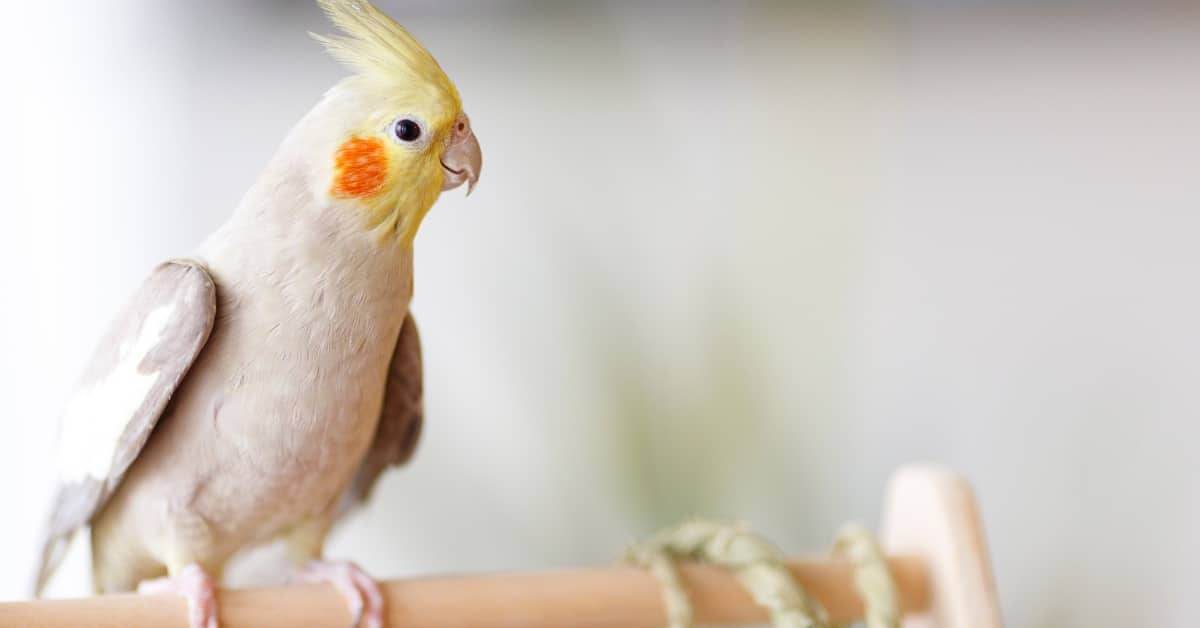Cockatiels are wonderful pets that require specific care to maintain their health and happiness. From their diet to their cage accessories, there are many factors to consider when taking care of these intelligent birds. Here are some of the most commonly asked questions about cockatiel birds, along with helpful information and tips.
What is the lifespan of a cockatiel?
Cockatiels have a lifespan of 10-14 years if they are well taken care of. To ensure that your cockatiel lives a long and healthy life, provide them with a proper diet, clean living environment, and regular veterinary check-ups.
What is the size of a cockatiel?
Cockatiels are small to medium-sized birds, typically measuring about 12-13 inches in length from the tip of their beak to the end of their tail. Males are slightly larger than females.
What should I feed my cockatiel?
A healthy and balanced diet for a cockatiel includes a variety of seeds, pellets, fruits, and vegetables. Westerman's Cockatiel Seeds and Daro Cockatiel Tonic, available on Petworld.co.za, are specially formulated to provide your cockatiel with a balanced and nutritious diet.
How often should I clean my cockatiel's cage?
Cockatiels are clean birds, but their cages still need to be cleaned regularly. You should clean your cockatiel's cage at least once a week. However, if you notice that the cage is getting dirty or smelly before the week is up, you may need to clean it more frequently. Sand sheets and Avian Bird Cage Disinfectant, available on Petworld.co.za, can help keep your cockatiel's living environment clean and hygienic.
Sand Sheets are specially designed to help maintain your bird's hygiene and health. They're easy to use and can help prevent the spread of germs and bacteria. Simply place the sand sheets in the bottom of your cockatiel's cage, and they will help absorb any moisture or droppings, making it easier to clean the cage.
Avian Bird Cage Disinfectant is specially formulated to keep your bird's cage free from harmful bacteria and viruses. It's easy to use and safe for use on birds and their environment. Simply spray the disinfectant onto the cage surfaces, wait a few minutes, and wipe clean.
Do cockatiels need toys?
Yes, cockatiels need toys to keep them mentally stimulated and entertained.
The Bird Toy Wood Chain Bridge Ladder is designed to provide your bird with exercise and mental stimulation. The ladder can help your cockatiel climb and play, which can promote physical activity and help keep them healthy. Additionally, the wooden chains and bridge provide a fun and interesting texture for your bird to explore, helping to keep them mentally stimulated.
The Cockatiel Ring, on the other hand, is designed specifically to help your bird develop their beak strength and coordination. The ring is made from durable materials, so your bird can spend hours pecking and playing without damaging the toy. This type of toy can also help reduce the risk of your cockatiel developing beak and feather problems, which can occur if they don't have enough stimulation and opportunities to use their beak.
Can cockatiels talk?
Yes, cockatiels can learn to talk and mimic sounds, although they are not as skilled as some other parrot species. Happy Pet Bird Mirrors, available on Petworld.co.za, can help stimulate your cockatiel's vocal abilities. When your bird sees their reflection in the mirror, they may be more likely to vocalize and mimic sounds. Additionally, bird toy mirrors can provide your cockatiel with entertainment and mental stimulation, which can also help promote vocalization. However, it's important to note that not all cockatiels will learn to talk, and that some may be more inclined to vocalize than others.
Do cockatiels need companionship?
Cockatiels are social birds and enjoy the company of other cockatiels. When kept in isolation, cockatiels can become bored and may start to exhibit destructive behaviors, such as feather-plucking or excessive vocalization. Additionally, without social interaction, your bird may become less tame and less willing to interact with you or other humans.The Deluxe Cockatiel Bird Cage, available on Petworld.co.za, provides ample space for your cockatiels to move around and exercise.
How often should I take my cockatiel to the vet?
Here are some things to look out for when deciding to take your cockatiel to the vet:
Changes in behavior: If you notice that your cockatiel is behaving differently than usual, it may be a sign that something is wrong. For example, if your bird is lethargic or not as active as usual, it could be an indication of an underlying health problem.
Changes in appetite or water intake: If your cockatiel stops eating or drinking, it's important to take them to the vet immediately. Changes in appetite or water intake can be a sign of a serious health issue.
Respiratory problems: If your cockatiel is having difficulty breathing or is making wheezing or coughing sounds, it could be a sign of respiratory problems. This is especially important to look out for if your bird has been exposed to cigarette smoke or other pollutants.
Changes in appearance: If you notice any changes in your bird's appearance, such as ruffled feathers, changes in feather color or texture, or bumps or lumps, it could be a sign of a health issue.
Injury or trauma: If your cockatiel has been injured or has experienced any trauma, such as falling or being attacked by another animal, it's important to take them to the vet immediately.
In conclusion, taking care of a cockatiel requires a lot of effort and care, but it can be a very rewarding experience. By following these tips and investing in the top recommended products available on Petworld.co.za, you can ensure that your cockatiel lives a long, healthy, and happy life.
